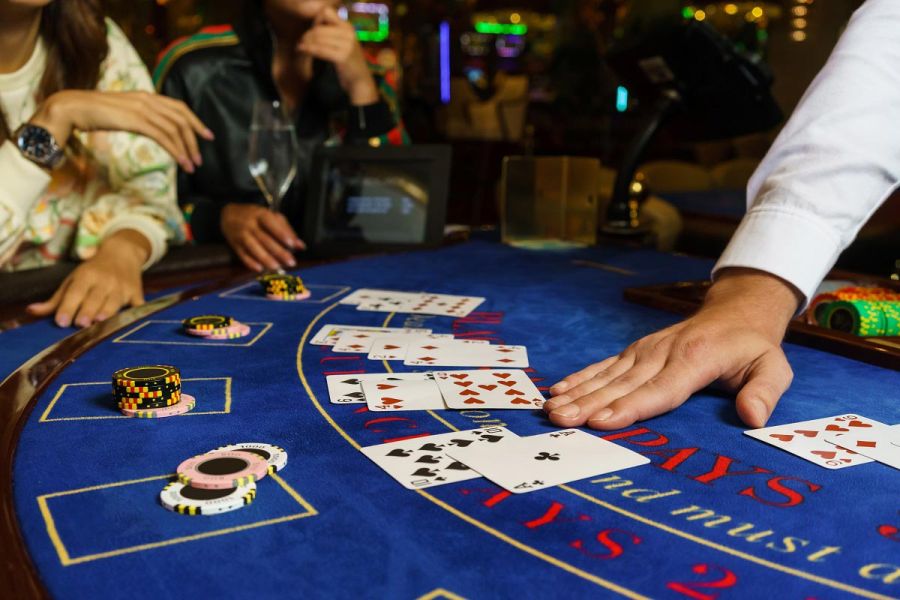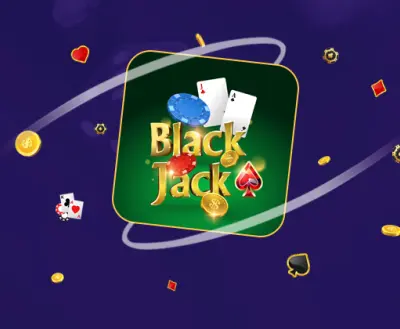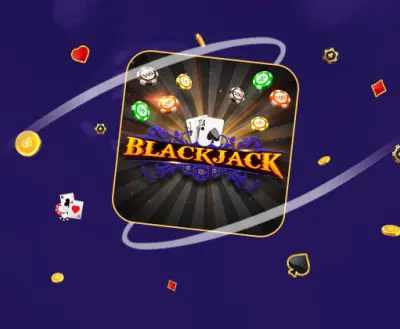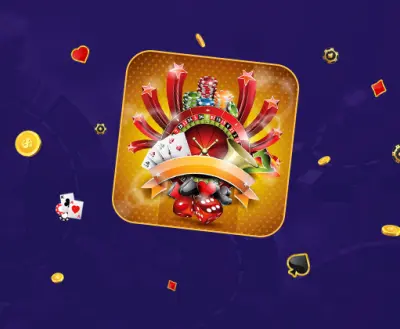House Edge Explained: Understanding the Odds of Winning at Online Casinos
Key Takeaways:
- House Edge is the built-in casino advantage, ensuring their long-term profitability.
- Understanding probability and odds is vital in casino games, helping you make informed bets.
- The House Edge is calculated by comparing the true odds and the casino's payout odds.
- Using strategies can reduce the House Edge in various games like blackjack and roulette, but they don't guarantee wins.
- Card counting in blackjack and avoiding high House Edge bets in craps can potentially increase winning chances.
- Proper bankroll management, including budget setting and knowing when to stop, is crucial for casino players.
- Despite strategies, the House Edge gives casinos the upper hand. Common misconceptions include the belief in foolproof betting systems and that past outcomes influence future results.
- Gambler's Fallacy, the belief that past outcomes influence future ones, can lead to poor decisions. Over-relying on strategies can result in reckless betting.
- Luck significantly influences casino games' outcomes. Games should be viewed as entertainment, with winning never guaranteed. Responsible gambling is key.
What is it that draws people to casinos? Is it the thrill of the games, the excitement of the atmosphere, or the chance to win big and beat the odds? In reality, it's a combination of all these factors, but there's one crucial aspect that many players overlook: the House Edge. In this comprehensive guide, we'll dive deep into the world of House Edge, explaining its significance, how it's calculated, and sharing valuable tips to help you reduce it in your favorite casino games.
Whether you're spinning the reels on a slot machine, placing bets on roulette payouts, or trying your luck at live blackjack, it's essential to understand the role of probability and odds in casino games. By grasping these concepts, you'll have a better idea of what to expect when you play, and you can make more informed decisions about your gambling strategy.
So, what exactly is House Edge, and why is it so important? In this article, we'll cover everything you need to know about House Edge and provide valuable casino tips to help you make the most of your gambling experience. We'll delve into popular games like blackjack, craps, and roulette, and discuss the best strategies for minimizing the House Edge in each. We'll also debunk some common gambling myths and emphasize the importance of responsible gambling and managing your casino bankroll.
Table of Contents

Understanding Probability and Odds
Before we dive into the world of House Edge, it's crucial to understand the basic concepts of probability and odds. These two terms are often used interchangeably, but they have distinct meanings that you'll need to grasp if you want to master the art of casino gaming.
Probability: The Likelihood of an Outcome
Let's start with probability. Simply put, probability is the likelihood of a specific outcome occurring in a given situation. It's usually expressed as a number between 0 and 1, or as a percentage between 0% and 100%. A probability of 0 means the event is impossible, while a probability of 1 (or 100%) means the event is certain to occur.
For example, when flipping a fair coin, there are two possible outcomes: heads or tails. Since each outcome is equally likely, the probability of getting heads is 0.5 (or 50%), and the probability of getting tails is also 0.5 (or 50%).
Odds: Comparing the Probability of Winning to Losing
Odds, on the other hand, are a way of comparing the probability of winning to the probability of losing. In the context of gambling, odds are typically expressed as a ratio, such as 3:1, or as a fraction, like 3/1.
To illustrate the difference between probability and odds, let's take a look at a simple example. Imagine you're playing a game where you have a 1 in 4 chance of winning. The probability of winning is 1/4 or 0.25 (25%). To calculate the odds of winning, you would divide the probability of winning (1) by the probability of losing (3) – as there are three ways to lose and one way to win. The odds, in this case, would be 1:3 or 1/3.
Probability vs. Odds: What's the Difference?
So what is the actual difference between probability and odds, you ask? Probability is the measure of how likely an event is to occur, while odds are a comparison of the likelihood of winning versus losing. Although these two concepts are related, it's essential to understand the difference between them when you're gambling, as they have distinct implications for your betting strategy.
Examples of Probability and Odds in Casino Games
Now that you've got a handle on the basics, let's explore how probability and odds apply to some popular casino games:
- Roulette: In American roulette, for example, there are 38 numbered slots on the wheel (1-36, plus 0 and 00). If you bet on a single number, the probability of winning is 1/38, or approximately 2.63%. The odds of winning, however, are 37:1, as there are 37 ways to lose and just one way to win. To learn more about roulette odds, check out our comprehensive article here: Roulette Odds: What Are The Odds Of Winning At Roulette?
- Blackjack: In blackjack, the probability of being dealt a specific card, like an Ace, is 4/52 (since there are four Aces in a standard 52-card deck). The odds of being dealt an Ace are 48:4, or 12:1, as there are 48 other cards that you could be dealt instead.
- Craps: In craps, the probability of rolling a specific number with two dice depends on the number of ways that the dice can add up to that value. For example, the probability of rolling a 7 is 6/36 (or 1/6), as there are six combinations that result in a 7 (1+6, 2+5, 3+4, 4+3, 5+2, 6+1). The odds of rolling a 7 are 5:1, as there are five ways to lose (rolling any other number) and one way to win (rolling a 7).
- Slots: Slot machines use a random number generator (RNG) to determine the outcome of each spin. The probability of hitting a specific combination of symbols depends on the number of possible combinations and the weighting of each symbol. For example, if a slot machine has 1,000 possible combinations and the jackpot combination has a 1 in 1,000 chance of occurring, the probability of hitting the jackpot is 0.001 (or 0.1%). The odds of hitting the jackpot would be 999:1, as there are 999 ways to lose and one way to win.
House Edge and Its Significance
Now that we've covered probability and odds, it's time to tackle the all-important concept of House Edge. In this section, we'll define House Edge, explain its significance for casinos, and explore how it works. We'll also discuss how to calculate it, so you can make informed decisions about the games you play and the bets you place.
What is House Edge?
House Edge is the built-in advantage that casinos have over players in every game they offer. It ensures that, over the long run, the casino will always come out on top, even though individual players may experience short-term wins. In essence, it represents the average percentage of each bet that the casino expects to keep as profit
Why is House Edge Important for Casinos?
The existence of House Edge is crucial for casinos because it guarantees their profitability. Without it, casinos would be at the mercy of luck, just like players, and they wouldn't be able to maintain their operations or cover their expenses. It provides a consistent revenue stream for casinos, allowing them to offer a variety of games and services to their customers.
How House Edge Works
House Edge works by subtly tilting the odds in the casino's favour. In most games, this is achieved through the game's rules or payout structure.
For example (we’ll use American roulette again), the presence of the "0" and "00" spaces on the wheel gives the casino an advantage, as these spaces are not part of the standard betting options. When the ball lands on either of these spaces, all other bets lose, and the casino collects the money.
In other games, like blackjack, the casino's advantage comes from the fact that players must act first. If a player busts (goes over 21), they lose their bet, even if the dealer subsequently busts as well.
Calculating House Edge
To calculate the House Edge for a specific casino game, you'll need to consider both the probability of winning a particular bet and the payout for that bet. It is the difference between the true odds of the bet and the odds that the casino pays out.
Here's a step-by-step process to calculate House Edge:
- Determine the probability of winning: Calculate the likelihood of winning a specific bet, using your understanding of probability.
- Determine the payout odds: Find out how much the casino pays out for a winning bet, expressed as a ratio or fraction (e.g., 2:1, 3/2).
- Calculate the expected value: Multiply the probability of winning by the payout odds to determine the expected value of the bet.
Subtract the expected value from the true odds: The difference between the true odds and the expected value represents the House Edge.
Example: House Edge in American Roulette
Let's calculate the House Edge for the casino in American roulette. To determine the true value, you need to calculate the average loss per bet, which is as follows:
- Calculate the average loss for a losing bet: There are 37 ways to lose a single-number bet (all numbers except the winning one). The probability of losing is 37/38, and the loss per losing bet is the amount of the bet. Multiply the probability of losing by the loss per losing bet: (37/38) * -1 = -0.9737.
- Calculate the average gain for a winning bet: There is only one way to win a single-number bet (landing on the winning number). The probability of winning is 1/38, and the gain per winning bet is 35 times the amount of the bet. Multiply the probability of winning by the gain per winning bet: (1/38) * 35 = 0.9211.
Calculate the average net loss per bet: Subtract the average gain for a winning bet (0.9211) from the average loss for a losing bet (-0.9737): 0.9211 - (-0.9737) = 0.0526, or approximately 5.26%.
House Edge in Popular Casino Games
In this section, we'll explore the House Edge in some popular casino games, including blackjack, roulette, slots, craps, and baccarat. By understanding the concept in each of these games, you can make more informed decisions about which games to play and which bets to place.
House Edge in Blackjack
Blackjack is a popular card game that offers players some of the best odds in the casino. The House Edge in blackjack depends on the specific rules of the game and the player's strategy. With optimal blackjack basic strategy, it can be as low as 0.5%, making blackjack one of the most player-friendly games in the casino.
Example: In a game of blackjack with a 3:2 payout for a natural blackjack and the dealer standing on a soft 17, the House Edge is approximately 0.5% when using optimal basic strategy.
House Edge in Roulette
As we've discussed earlier, roulette comes in two main varieties: American and European roulette. The primary difference between the two is the number of zeros on the wheel, which directly affects the House Edge.
- American Roulette: With both a single zero (0) and a double zero (00) on the wheel, the House Edge in American roulette is 5.26% for most bets.
- European Roulette: Featuring only a single zero (0), European roulette offers a lower House Edge of 2.7% for most bets.
Example: In American roulette, betting on red or black has a House Edge of 5.26%, while the same bet in European roulette has a House Edge of 2.7%.
House Edge in Slots
Slot machines offer a wide range of House Edges, depending on the specific machine and its settings. The House Edge for slots typically ranges from 2% to 15%. Many online and land-based casinos provide information about the Return to Player (RTP) percentage for each slot machine, which is the inverse of the House Edge.
Example: A slot machine with an RTP of 96% has a House Edge of 4% (100% - 96% = 4%).
House Edge in Craps
Craps is a dice game that offers a variety of betting options, each with its own House Edge. Some bets in craps have a relatively low House Edge, while others have a much higher House Edge.
- Pass Line/Come Bets: These bets have a House Edge of 1.41%.
- Don't Pass/Don't Come Bets: These bets have a slightly lower House Edge of 1.36%.
- Place 6 and Place 8 Bets: These bets have a House Edge of 1.52%.
However, there are also bets with a much higher House Edge:
- Any 7 Bets: These bets have a House Edge of 16.67%.
- Hardways Bets: The House Edge for these bets ranges from 9.09% to 11.11%, depending on the specific bet.
Example: In craps, betting on the Pass Line has a House Edge of 1.41%, while betting on Any 7 has a much higher House Edge of 16.67%
House Edge in Baccarat
Baccarat is another popular casino game with a relatively low House Edge. There are three main bets in baccarat: Player, Banker, and Tie.
- Player Bets: These bets have a House Edge of 1.24%.
- Banker Bets: Despite a 5% commission on winning bets, the Banker bet has a lower House Edge of 1.06%.
- Tie Bets: The Tie bet has a much higher House Edge, typically around 14.36%.
Example: In baccarat, betting on the Banker has a House Edge of 1.06%, while betting on a Tie has a significantly higher House Edge of 14.36%.
Strategies to Reduce the House Edge
Let’s explore various strategies that can help you reduce the House Edge and improve your chances of winning at the casino. Keep in mind that no strategy can guarantee a win, but implementing these tactics can increase your odds of success.
Understanding the Importance of Strategy
Using a well-thought-out strategy is crucial in many casino games. A solid strategy can help you minimise losses, maximise gains, and ultimately reduce the House Edge. By studying and practising different strategies for each game, you can make more informed decisions and improve your overall casino experience.
Basic Strategy for Popular Casino Games
Here are some basic strategies for a few popular casino games:
Basic Strategy for Blackjack
The blackjack basic strategy is a set of rules that dictate the optimal play for every possible hand you could be dealt. By following the blackjack basic strategy, you can minimise the House Edge to as low as 0.5%. Basic strategy charts are widely available online and can be used as a reference while playing.
Basic Strategy for Roulette
In roulette, the best strategy is to stick to bets with the lowest House Edge, such as even money bets (red/black, odd/even, high/low) in European roulette, which have a House Edge of 2.7%. Additionally, it's essential to avoid the riskier bets like single number bets, which have a much higher House Edge.
Basic Strategy for Baccarat
In baccarat, the Banker bet has the lowest House Edge (1.06%), so the optimal strategy is to consistently bet on the Banker. Avoid the Tie bet, as it has a significantly higher House Edge (14.36%).
Counting Cards in Blackjack
Card counting is a strategy used in blackjack to keep track of the ratio of high cards to low cards in the deck. By doing so, a skilled card counter can gain an edge over the casino. However, card counting is not a guaranteed winning strategy and requires a lot of practice to master. Additionally, many casinos take measures to prevent card counting, such as using multiple decks or shuffling the deck frequently.
Avoiding Sucker Bets in Craps
In craps, some bets have a much higher House Edge than others. To improve your chances of winning, it's crucial to avoid these sucker bets, such as the Any 7 bet (House Edge of 16.67%) and the Hardways bets (House Edge ranging from 9.09% to 11.11%). Instead, focus on the bets with the lowest House Edge, like the Pass Line or Don't Pass bets.
Tips for Managing Bankroll
Proper bankroll management is essential for any casino player. Here are some tips to help you manage your bankroll effectively:
- Set a budget: Before you start playing, determine how much money you're willing to risk and stick to that amount.
- Divide your bankroll: Break your bankroll into smaller portions for each gaming session to avoid losing your entire bankroll in one go.
- Know when to walk away: If you're on a losing streak or have reached your budget limit, it's essential to walk away and avoid chasing losses.
- Take advantage of casino bonuses: Many online casinos offer bonuses and promotions, which can help increase your bankroll and give you more opportunities to play.
By implementing these strategies, you can effectively reduce the House Edge and improve your chances of winning at the casino. Remember, though, that luck always plays a role in casino games, and no strategy can guarantee success.
The Myth of Beating the House Edge
It's essential to understand that no matter how skilled or experienced you are, the House Edge ensures that the casino always has the upper hand in the long run. In this section, we'll debunk some common myths about consistently winning at casinos, discuss the Gambler's Fallacy, and explore the role of luck in casino games.
Debunking Myths About Winning Consistently at Casinos
There are several myths surrounding the idea of consistently winning at casinos. Let's take a closer look at some of them:
- Certain betting systems can guarantee a win: No betting system can guarantee a win, as the outcome of each game is independent and unpredictable.
- Casino games are rigged: While the casino has the House Edge, reputable casinos operate under strict regulations and use random number generators to ensure fair gameplay.
- A hot streak means you're due for a loss (and vice versa): Each game's outcome is independent, so a winning or losing streak doesn't influence the likelihood of the next outcome.
Explaining the Gambler's Fallacy
The Gambler's Fallacy is a common misconception that the outcome of a random event is influenced by previous events. For example, if a coin is flipped and lands on heads five times in a row, some people might think tails is "due" to come up next. However, each flip is an independent event, and the previous flips have no bearing on the next one.
This fallacy can be particularly dangerous in a casino setting, as it may lead players to make poor betting decisions based on the belief that they're due for a win or a loss.
Risks of Relying on Strategies to Beat House Edge
While strategies can help reduce the House Edge and improve your chances of winning, relying solely on them can be risky. Some players may become overconfident in their abilities or believe they've discovered a foolproof system, leading to reckless betting and potentially significant losses.
It's essential to approach casino games with a healthy dose of realism, recognizing that no strategy can guarantee a win and that the House Edge always favours the casino in the long run.
Understanding the Role of Luck in Casino Games
Luck plays a significant role in casino games, as their outcomes are determined by random events. While strategies can help you make better decisions and potentially increase your chances of winning, it's important to remember that no amount of skill or planning can guarantee success.
Casino games should be approached as a form of entertainment, with the understanding that winning is never a sure thing. By keeping this in mind and practising responsible gambling, you can enjoy the excitement and thrill of the games without succumbing to the illusion of beating the House Edge.
Conclusion
The House Edge is the inherent advantage that casinos hold over players, ensuring they generate profits over time. For any casino player, grasping this concept is vital, as it directly influences your winning chances. By getting acquainted with it in popular games like Blackjack, Roulette, Slots, Craps, and Baccarat, you can make well-informed decisions and potentially boost your odds of winning.
Keep in mind that it is designed to favour the casino, so it's crucial to adopt a responsible gambling mindset. Set a budget, adhere to it, and never attempt to recover your losses. Treat casino games as a form of entertainment and maintain realistic expectations.








